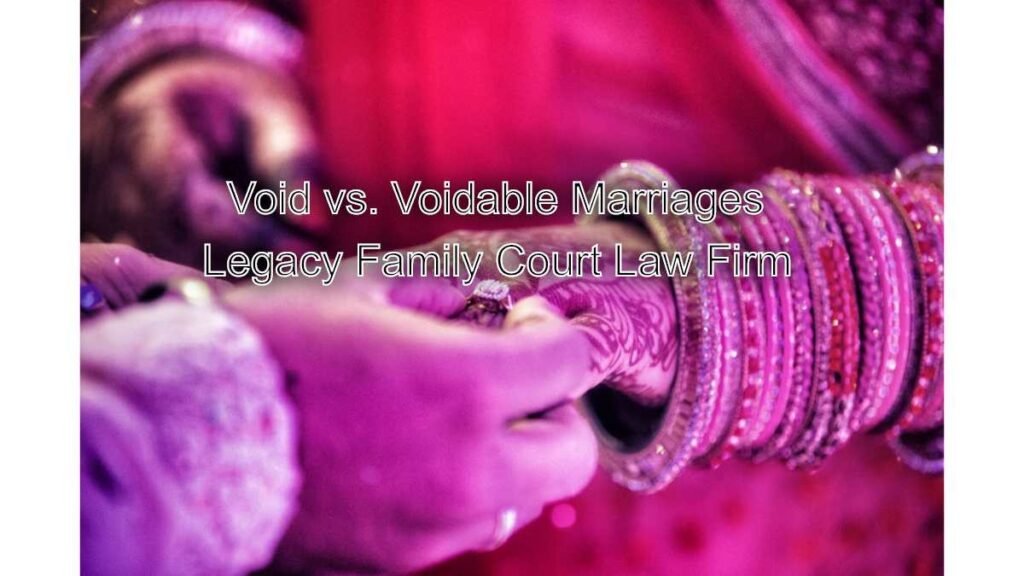Best Lawyers for Marriage Annulment in Chennai
Void vs. Voidable Marriages in India: Legal Distinctions - Legacy Family Court Law Firm
Introduction
In India, marriage is a sacred institution with significant legal implications. Understanding the nuances between void and voidable marriages is crucial for individuals involved in marital disputes. This article delves into the legal distinctions between these two types of marriages, providing insights from the perspective of Legacy Family Court Law Firm, a renowned legal institution specializing in family law matters.

Void Marriages
Void marriages are considered null and void from the very beginning, as they violate fundamental legal principles. These marriages are deemed invalid and have no legal force. Some common grounds for void marriages in India include:
- Polygamy: Marrying while already married is considered void.
- Sati: A marriage where a woman is forced to commit suicide upon her husband's death is void.
- Child Marriage: Marriages involving minors below the legal age of consent are void.
- Prohibited Degrees of Relationship: Marriages between individuals within prohibited degrees of relationship (e.g., close relatives) are void.
Voidable Marriages
Unlike void marriages, voidable marriages are initially valid but can be declared invalid upon a court's decision. These marriages are considered voidable due to certain defects or irregularities that can be rectified. Common grounds for voidable marriages include:
- Force or Fraud: Marriages obtained through coercion or deception are voidable.
- Mental Incapacity: Marriages where one party was mentally incapable of understanding the nature of marriage or giving consent are voidable.
- Unsound Mind: Marriages where one party was suffering from a mental disorder that rendered them incapable of understanding or consenting to marriage are voidable.
- Misrepresentation or Mistake: Marriages based on false representations or significant mistakes can be voidable.
Legal Consequences
The legal consequences of void and voidable marriages differ significantly. Void marriages are considered non-existent from the outset, and any rights or obligations arising from them are void. Voidable marriages, on the other hand, can be annulled by a court if the grounds for voidability are proven. Once annulled, a voidable marriage is considered void retroactively.
Legacy Family Court Law Firm: Your Trusted Legal Partner
Legacy Family Court Law Firm is a leading legal institution in India specializing in family law matters. Their team of experienced attorneys possesses a deep understanding of the intricacies of void and voidable marriages, providing expert legal advice and representation to individuals facing such challenges.
Read More
- Mediation for Divorce in India: Expert Lawyers
- Seeking Expert Family Law Advice for Annulment? Here’s Your Guide
- Annulment of marriage in Chennai: What is the procedure?
- Supreme Court Transfer for Divorce Cases: Complexities Explained
- Special Marriage Act Divorce Proceedings in India: Key Points
- Department of Legal Affairs:
Conclusion
Understanding the distinction between void and voidable marriages is essential for individuals involved in marital disputes. Void marriages are inherently invalid, while voidable marriages can be annulled under certain circumstances. Legacy Family Court Law Firm offers comprehensive legal services to individuals seeking guidance and representation in matters related to void and voidable marriages.